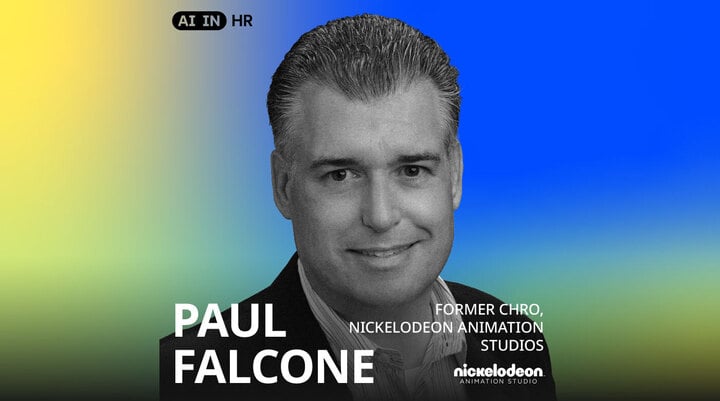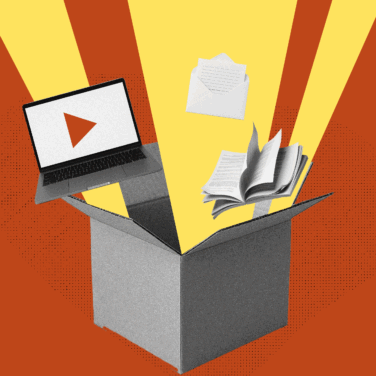In this conversation, Paul reflects on how AI is reshaping HR, leadership, and the workplace — and the legal implications that must be considered.
Paul Falcone’s Journey From Hollywood HR to Global Leadership
I've served as the CHRO of Nickelodeon Animation Studios and head of international HR for Paramount Pictures. I’ve also worked in HR across healthcare, biotech, and financial services — spanning union, nonprofit, and international environments.
For two decades, I was a columnist for SHRM’s HR Magazine and HR Daily Newsletter, and I taught in UCLA Extension’s School of Business & Management. I now serve on the board of directors of the American Management Association.
As an author, I’ve written 17 books with HarperCollins Leadership that have sold over 750,000 copies and been translated into Chinese, Hindi, and Russian, among other languages.
In 2022, I launched my own leadership consulting firm, Paul Falcone Workplace Leadership Consulting, LLC, where I specialize in international keynote speaking, management training, and executive coaching.
How HR Is the Function Responsible for Guiding Organizations in the Age of AI
AI is dramatically reshaping the business landscape. HR tasks that once took weeks or months can now be completed in hours thanks to tools like ChatGPT, Google Gemini, and Microsoft Copilot.
HR tasks that once took weeks or months can now be completed in hours thanks to ChatGPT, Google Gemini, and Microsoft Copilot.
It’s an amazing time to witness the aggregating power of AI software and tools, but it also raises tough questions about the future of qualified staff and professional writers. Tech CEOs are already projecting 10–30% reductions in white-collar positions, and there’s even talk of the first single-employee, billion-dollar company.
That means HR isn’t just reacting to AI’s rise — it’s becoming the function responsible for guiding organizations through the workforce disruption it brings.
HR isn’t just reacting to AI’s rise — it’s guiding organizations through the workforce disruption it brings.
How AI Can Be Used to Uplevel Performance Management
One of the areas where AI’s impact is most visible is performance management.
Developing a management program from scratch was once a natural outgrowth of scaling a company past a certain size, whether in terms of the number of employees or revenues. But AI now permits the creation of job descriptions, salary ranges, onboarding models, and performance review templates — and even mission, vision, and value statements — that capture not just the quantity of data, but also the tone and feeling of an organization’s culture.
Customized learning and development apps now help create individualized training plans and enhance the employee experience. Coaching apps are rolling out as we speak, providing real-time feedback to managers and individual contributors on how to handle situation-specific, work-related challenges. Data analytics and numerical-based staffing models will surely reach new heights in AI’s data-driven world.
And developing a slate of relevant interview questions, reference-checking queries, and onboarding programs is no longer solely in the domain of large organizations with extensive HR teams.
You'll still need to vet the results carefully and customize the content for your organization or department, but the heavy lifting will already be in place, thanks to AI. Once you gain the necessary edits and approvals from the hiring manager or department, you can move on to your next role within your company. A complete taxonomy of roles, responsibilities, and classifications can be developed by one person in a fairly short amount of time.
And even though the data being pulled from AI large language models still needs to be vetted and ethically acquired, the level of data accuracy in many of the performance-management examples above appears to be fairly well-curated and in need of minimal tweaking.
Why Legal and Ethical Implications of AI Adoption Are as Important as the Operational Implications
Still, this new efficiency comes with responsibility. The legal and ethical implications of AI adoption are becoming just as important as the operational ones.
Risks of disparate impact and algorithmic bias claims will surely become fodder for the plaintiff’s bar and case law studies of the future. Companies and HR teams would be well advised not to blindly rely on AI for hiring, selection, or promotion decisions without consistently reviewing AI-driven recommendations and monitoring for skewed results.
Risks of disparate impact and algorithmic bias claims will surely become fodder for the plaintiff’s bar and case law studies of the future. Companies and HR teams would be well advised not to blindly rely on AI for hiring, selection, or promotion decisions without consistently reviewing AI-driven recommendations and monitoring for skewed results.
The employment legal field is already buzzing with new terminology and what-if scenarios. "Algorithmic bias" is something that will become a legal charge that companies will have a difficult time defending against because HR professionals are not trained in that space. They'll have difficulty explaining how algorithmic decisions impact resume screening, hiring, promotions, and layoffs. While there's no regulation at the federal level (which is desperately needed, in my opinion), California has taken the lead. As of October 1, the California Civil Rights Department now requires large companies with over $500 million in revenue to conduct mandatory “bias audits.”
Next, there's the issue of privacy. Open system AI will not keep employee info private, so there's a question over whether closed system AI will make more sense — but that only applies to larger employers that can afford such programs.
Further, there are wage and hour questions about exemption status. If AI performs most of the “independent decision-making” and “discretionary effort,” could employees currently classified as “exempt” argue they should be reclassified as nonexempt and eligible for overtime pay?
And even more provocatively, will employers be liable for sexual harassment committed by robots?
So, I think there will be a whole new field of employment law based on challenges to employers’ AI results and recommendations in hiring and promotion processes, among others.
HR executives will need to fine-tune their AI vetting skills to ensure that proper analyses of AI results are conducted and appropriately validated.
HR executives will need to fine-tune their AI vetting skills to ensure that analyses of AI results are conducted and appropriately validated.
How HR Leaders Can Strengthen Their AI Vetting Practices and Mitigate Risk
The general advice, especially in California, when it comes to AI implementation, is:
- Use AI to assist, not replace, employment-based decisions.
- Establish oversight and reporting mechanisms so that any problematic trends or patterns in results can be quickly identified and remedied — for example, if the algorithm seems to only recommend white males or white males under 40 for certain roles.
- Develop a protocol for bias testing.
California’s law is the first, but it certainly won’t be the last, and the current $500 million revenue threshold will likely come down over time.
Using AI for Writing, Research, and Storytelling
I launched my consulting practice in April 2022 — about six months before ChatGPT was released. Because of that, I haven’t yet worked with the newer HR-specific AI tools. I’ve primarily used AI as an independent consultant in my one-person business to support my research, analysis, and writing.
In my consulting and writing work, it’s the ease of use that stands out. I like being able to “tell a whole story” in my AI prompt to create a particular tone or feeling in the results. For example, including directions like “use a friendly and informal tone” strongly influences the output.
I also love using AI for book reviews — asking it to summarize and pull out the key concepts and lessons from a book or article. Within seconds, I can get an overall feel for a book’s theme and key points, even when I don’t have time to read it in full.
The fact that AI can surface such relevant and timely information so quickly is remarkable.
Why AI Certification Will Become a Requirement
As AI becomes integral to every industry, the question of certification will become increasingly important.
What role will AI certification play in professionals’ career development? Who will offer the necessary credentials? Will it come from Google, Microsoft, and OpenAI directly, or will Massive Open Online Courses (MOOCs) like Coursera, FutureLearn, and others fill that void?
The next generation of leaders will treat AI literacy not as an advantage, but as a requirement.
How Automation Will Reshape the Workforce
Looking beyond HR, the ripple effects of AI are set to redefine entire industries.
As the pace of change accelerates, the largest impacts of AI will come in three fronts:
- Stronger vetting of AI models and mandatory validation studies and bias audits to ensure fairness and defend against adverse disparate impact lawsuits.
- Sizeable downsizing of the white-collar, college-educated workforce throughout business operations, including HR, marketing, sales, customer care, finance, and IT.
- The rise of smaller companies and the undoing of larger “mega cap” organizations that will likely remain profitable but downsize considerably. This will happen alongside an increase in portfolio work where independent consultants provide real-time solutions to companies in need of their specialty services — where companies do not want to add to headcount.
These shifts will redefine what it means to work, lead, and grow — and the organizations that adapt fastest will have a clear advantage.
That being said, it's realistic to expect new jobs to be created that don't exist today. For example, in 1950, 43 million Americans had jobs. By 2020, over 152 million Americans were employed. Therefore, more than 100 million new jobs were created during a period of profound technological change, many in categories that did not exist before.
AI's trajectory will likely be similar, although newly created positions will not appear at the same time or frequency that existing positions will be replaced. We can reasonably expect a high level of disruption and compound volatility over the next decade as a result.
Actionable Advice for Leaders in the Age of AI
Looking forward, my advice to professionals and leaders is simple:
- Remain curious, but use AI to assist, not replace, human decision-making.
- Establish oversight and reporting mechanisms, and develop a protocol for bias testing.
- Get ahead of the AI super-train and don’t look back.
Those who fail to proactively adopt AI and imagine its workforce applications will surely fall behind.
Follow Along
You can follow Paul’s work on LinkedIn and subscribe to his blog at PaulFalconeHR.com, where he continues to advise leaders on ethical and practical AI adoption in the workplace. And explore his 17 bestselling leadership books.
More expert interviews to come on People Managing People.



